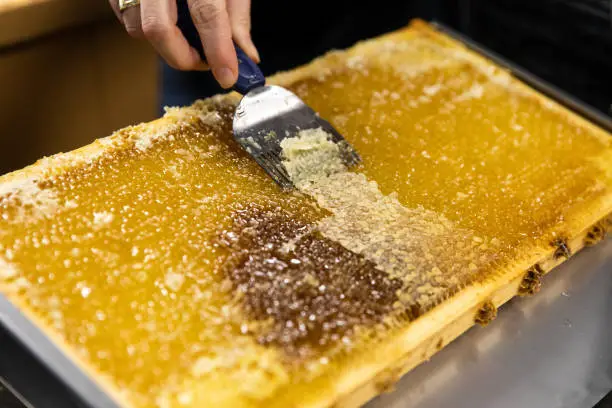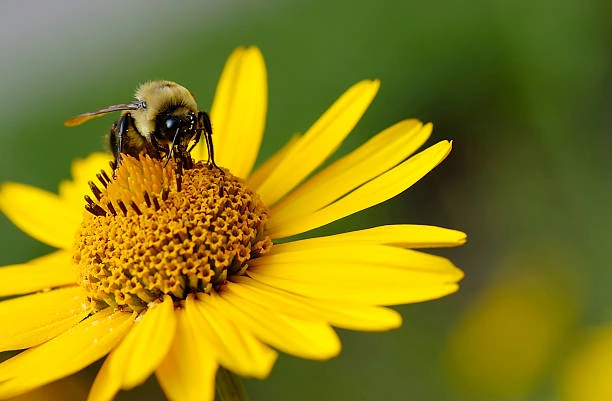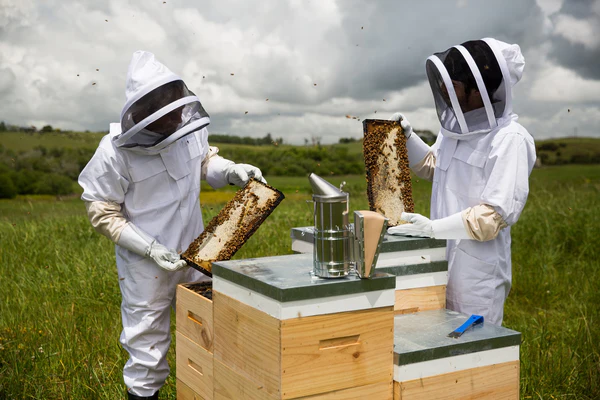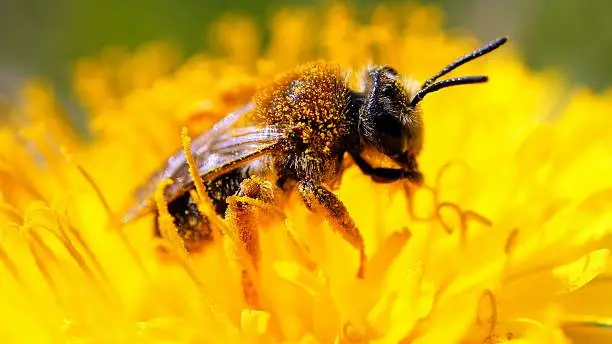Why Manuka Honey is So Expensive?
Manuka honey is expensive due to its limited production, unique medicinal properties, stringent quality standards and the labor-intensive process of harvesting and processing which drives up its price.
Manuka Honey is a Monofloral Honey which is produced from the nectar of Manuka tree. It is known for its unique properties and exceptional qualities. It is produced by European honeybees foraging on Manuka trees.
The Manuka trees are indigenous to New Zealand and coastal areas of Australia. Manuka Honey has a strong earthy aroma and flavor which is bitter in taste and dark brown color.
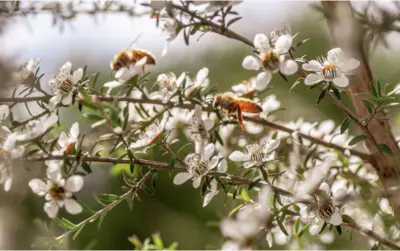
Manuka honey for export from New Zealand must be independently tested and pass the Manuka Honey Science Definition test as specified by the Ministry for Primary Industries (MPI), The test comprises five attributes. There are four chemicals and one DNA of Leptospermum scoparium. The honey must pass all five tests to be labeled as pure manuka.
This article explores Why Manuka Honey is so Expensive? and explains the Manuka Honey high demand.
The Geographic Constraint
Manuka honey is exclusive to certain regions of New Zealand, primarily in areas with an abundance of Manuka trees and bushes. This geographical constraint limits the honey’s production to specific locales, making it a rare commodity.
Sourced from Manuka Trees
The exclusivity of Manuka honey arises from its source – it is produced solely from the nectar of Manuka trees and bushes. This unique floral source sets it apart from other types of honey, but it also means that its production is limited to areas where these plants flourish.
Limited Production Quantities
There is limited production of quantity due to short window of flowering Manuka Tree which is about 04 – 06 weeks (about 1 and a half months) in a year
Exceptional Properties
Manuka honey is celebrated for its exceptional properties. It is revered for its antibacterial and medicinal attributes, which go beyond the capabilities of regular honey. This unique characteristic makes it a sought-after natural remedy.
Non-Peroxide Effects
Manuka Honey has non-peroxide effects which kill germs more effectively.
High Methylglyoxal (MGO) Levels
One of the magic ingredients that make Manuka honey so special is its high level of Methylglyoxal (MGO 514+). This compound plays a pivotal role in its ability to combat germs effectively, further justifying its price.
Rarity and High Demand
The rarity of Manuka honey coupled with its remarkable properties has led to a high demand worldwide. This surge in demand naturally results in higher prices, as consumers are willing to pay a premium for its unique benefits.
Limited Shelf Life
Manuka honey has a limited shelf life compared to regular honey. Its natural composition makes it susceptible to crystallization over time, making it essential for producers to maintain strict quality control measures. This limitation also defines Why the Manuka Honey is So Expensive.
Labor-Intensive Harvesting
It is labor intensive process which required highly skilled beekeepers
Specialized Testing
Manuka honey for export from New Zealand must be independently tested and pass the Manuka Honey Science Definition test as specified by the Ministry for Primary Industries (MPI), The test comprises the honey’s MGO level and other five attributes. There are four chemicals and one DNA of Leptospermum scoparium. The honey must pass all five tests to be labeled as pure manuka.
Ideal Hive Locations
Manuka honey production demands ideal hive locations, where bees can forage on Manuka trees and bushes without interference from other floral sources. These specific conditions must be met, further limiting its production.
Seasonal Challenges
Due to poor weather in tough season bees might not get enough fly-time to forage which effects the manuka honey yield.
Short Flowering Window
Manuka trees and bushes have a short flowering window, typically spanning only about 4 to 6 weeks each year. This brief period further restricts the timeframe for honey production, making it a challenge for beekeepers.
In conclusion, Many Consumers believe that due to the above given factors make the Manuka Honey worth the price.and clear the answer that why Manuka Honey is So expensive?
FAQs (Frequently Asked Questions)
1. Is Manuka honey worth the price?
Absolutely. Manuka honey’s exceptional properties and unique benefits make it worth the investment, especially for those seeking natural remedies and high-quality honey.
2. How can I ensure the authenticity of Manuka honey?
Look for reputable brands that provide certification for their Manuka honey. Authentic Manuka honey is tested and graded based on its MGO levels, ensuring its quality.
3. Can I use Manuka honey for everyday purposes?
While Manuka honey is prized for its medicinal properties, it can also be enjoyed as a delicious and nutritious sweetener in everyday cooking and as a spread.
4. Are there different grades of Manuka honey?
Yes, Manuka honey is graded based on its MGO levels, with higher levels indicating higher quality and potency.
5. Does Manuka honey have any side effects?
Manuka honey is generally safe for consumption, but individuals with allergies to bee products should exercise caution. It’s advisable to consult with a healthcare professional before using it for medicinal purposes.
